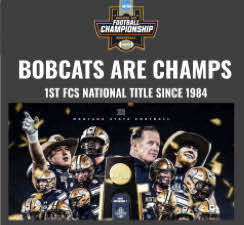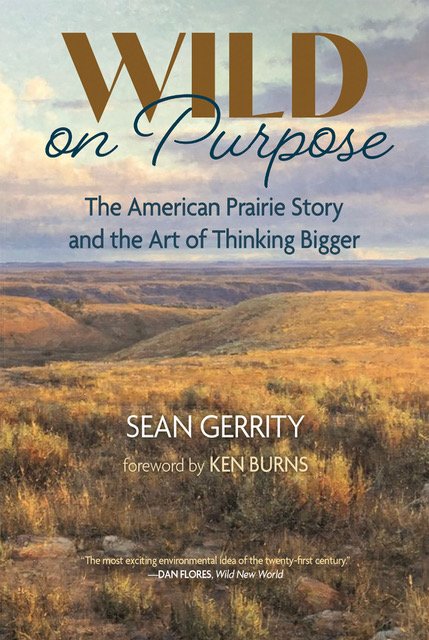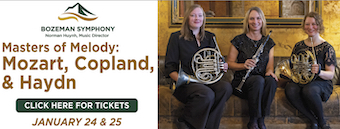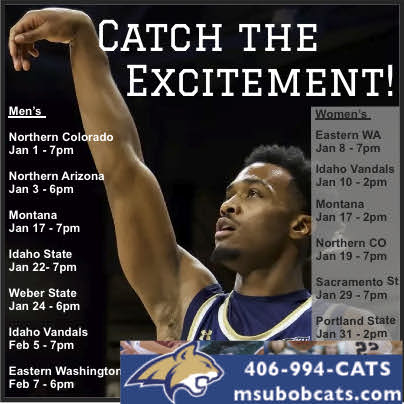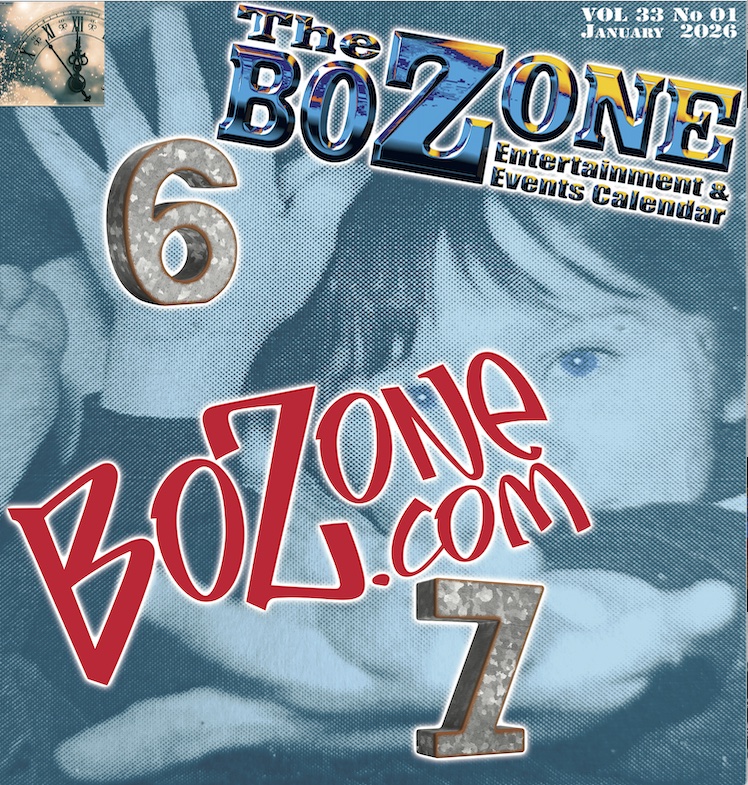A little wiser, Tumbledown House returns to scene of its early days
Bay Area songwriting deviants Tumbledown House have never been easy to describe. Modern speakeasy, saloon jazz, parlor pop, and “Tom Waits in a cocktail dress” are a few of the frequent descriptors, but none of these successfully convey the band’s incomparable ability to fuse vintage sounds and themes from yesteryear with the modern instrumentation, refreshingly original compositions, and raw energy that we expect from today’s performers.
In anticipation of their upcoming Bozeman performance, The Rolling Zone spoke with Tumbledown House founders Tyler Ryan Miller and Gillian Howe to talk the Montana return and diversifying their shtick.
RZ: The Tumbledown House sound is a bit tricky to nail down as it stems from a conglomeration of genres and influences. How would you describe who this group is creatively?
GH: We started out with Tyler’s jazz background and my lack of musical background at all, so that left us the freedom to do whatever we wanted. It was always rooted in his education, but it was also all over the place because I was bringing whatever melody was in my head – I didn’t know any of the rules and wanted to break them. Tyler grounded me [by saying] ‘music theory says you can’t do that,’ then I’d either be like ‘we’re going to do it anyway’ or ‘oh that’s why it’s not working, cool.’ When we start writing a song, we really try to make an atmosphere out of it. We have all these labels for ourselves like ‘modern speakeasy music,’ but don’t really want to be held to that because the next song might not sound the same at all. We don’t want to have to worry or feel apologetic about that. I don’t know what we would call it at this point, I just love the fact we do whatever we think the song wants and bring such a variety to the table. We’ve gone through and are influenced by different things. [Tumbledown House] is a living, breathing organism that evolves and changes.
RZ: What can fans, as well as those unfamiliar with Tumbledown House, expect to experience at the March 16th Ellen show?
TRM: We’ll play a mix of our tunes that are all across the board, like Gillian said. We have three albums at this point of songs from all sorts of different themes, songs ranging from the original story of Pinocchio written in the 1800s [to] a song about Arizona and the only consecrated shrine dedicated to unrepentant sinners. We’ll mix those in with crowd favorites we like to do – some Patsy Cline, Johnny Cash, and some old New Orleans standards made famous by Ella Fitzgerald and Louis Armstrong. We hope to seamlessly blend all that stuff together into a cohesive show.
GH: A guy at a recent show was saying how, in our originals, ‘I can hear what you’ve heard, but it’s so absolutely yours. I get the nostalgic satisfaction of these older genres you’re picking from, but it’s just something I’ve never seen before.’ And I thought that was so perfect because we love the old stuff and that’s what we want to convey. I’m up there onstage talking about Josephine Baker and Hoagy Carmichael, but we’re writing these new fresh, songs in a way that retells or keeps telling those stories. It’s a mix of old and new, something you’ve never heard before. And there’s some attitude in there, for sure.
TRM: We’re also bringing our clarinetist, Zac Johnson, from San Francisco. He is kind of a multi-instrumentalist of sorts [who] I often refer to as the ‘Jimi Hendrix of clarinetists.’ He plays the B-flat clarinet, bass clarinet, and the trombone. He adds a lot of texture to our music.
GH: He is unbelievable.
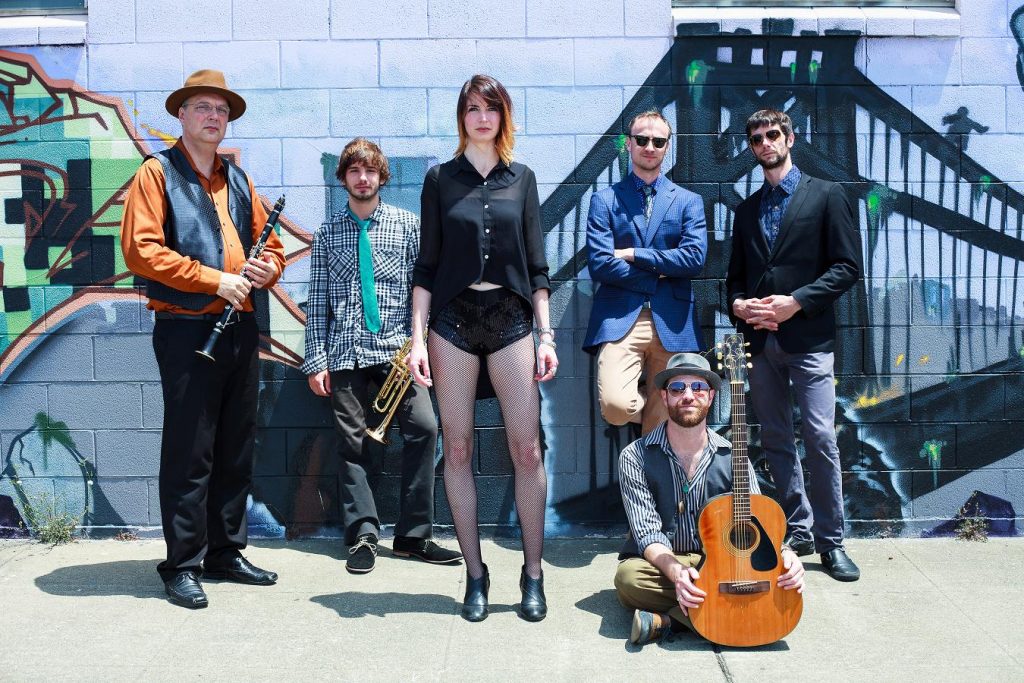
RZ: Speaking of Josephine Baker, the band recently released a video for “Ode to Josephine,” a cut off 2016’s Sum and Substance. What was the inspiration behind this salute?
GH: She’s my number one idol and I am totally obsessed with her. I started thinking about these historical women the world should still be talking about, and she really stood out because her life story is absolutely incredible and insanely rich with details. I was giving a talk on her [at the time], so I just thought ‘I’m going to try to write this song about her whole life’ because I wanted to be able to talk about somebody like that on stage. There are lots of living artists who deserve a lot of credit, our attention and our respect, but [they] came from a long line of amazing people. Beyoncé deserves all the credit we can give her, but let’s talk about who influenced really powerful women in music and society, especially when it was a lot more political. I don’t think we’ll ever be a very political band, but I do think people should still be talking about this person, this historical figure. Half the stuff we write is based in truth or inspired by truth. We’re storytellers. Our songs are story-based. And half the fun is the lead-up, what the songs are about.
RZ: You’re storytellers. During the initial creative stages, when do you decide a story or subject is song-worthy?
TRM: Sometimes I think there’s an idea that just doesn’t leave you alone. It’s almost like the concept decides itself. There have been songs that’ve rattled around in my head, that have kind of hung out there until I wrote them. Some of our songs started out that way, and they all sort of have a story to them. For example, we wrote a very Montana song called “Old Potosi” [for Tumbledown House]. We went out to the Pony hot springs and just sat down with a bottle of wine and wrote. I think we used some geographic names of places near the Potosi Hot Springs, but it’s funny because most of it is pure fantasy. Then we have songs that Gillian kind of constructed in her head and brought to me almost completely finished. Then we have some tunes that I wrote – like off this latest album there’s a song I wrote in a hut in the Peruvian jungle. They just all seem to have their own way of being born.
GH: That’s a really cool thing at this point. Because of Zac’s instrumentation and the fact he plays with us all the time now, we can [perform] songs that are so different from each other. I used to bring songs to Tyler and be like, ‘Well this is a song of mine, but it doesn’t fit Tumbledown House,’ but we’d make it a Tumbledown House song because it’s out of one of us and speaks to what we can do together as musicians. It took us a long time to find the right people to play with to make that happen. It’s really cool that now everything we write is us [when] it was much more of a garage sale before.
RZ: That’s a good way of putting it.
GH: We wrote a song about the year we lived in Prescott, Arizona, for our latest album. That song didn’t come when we were living there. Sometimes things have to settle in your consciousness and then, like Tyler said, it just won’t go away. But you never know when that settling has happened and when it’ll come up.
TRM: It’s like issues with your parents. You never really know when they’re going to manifest in your adult life.
RZ: Oh no! So, what progression have you noticed in the music between the self-titled debut and this most recent release? What has the band managed to retain in that time?
TRM: When we started off, there was definitely a push to make everything as fictional as possible. We really didn’t want to talk about ourselves, our predicaments, or our feelings so much. It was really easy to write about historic figures or these fantasy stories, writing in the third person all the time. As we’ve gotten older and have grown as humans and artists, I think we feel a little more comfortable being vulnerable and writing about more personal things. On our latest album, we’ve taken a bit of a turn from these third-person fictional stories to things that are more relevant to what’s going on in our personal lives. We’re more comfortable writing from that standpoint now, which is really good, but as far as what we’ve held onto, I think we still have our musical sensibilities. We get bored really quickly and can’t just play a chord progression over and over and over again without changing a time signature, or speeding up or slowing down, or adding a dramatically different, unexpected twist or turn. That’s what gets us excited as musicians. It’s what makes it fun to play the songs after you’ve played it five hundred times —
GH: — It’s also what makes rehearsal really challenging [laughs]. But I think also, we’re not afraid to write a slow song, whereas before it was like, ‘Gotta keep the party going!’ And now we can write something so beautiful. Yeah, maybe it doesn’t go on the album, and yeah, maybe it doesn’t get played in this show, but why tell ourselves we can’t do it or shouldn’t.
RZ: How was it decided this band of performers would be called “Tumbledown House”?
GH: I was reading Into the Wild by Krakauer, and that’s how he described a house Alex Supertramp lived in. I’m a super word nerd and just geeked out on the fact he didn’t hyphenate ‘tumbledown.’ This was around the same time I met Tyler, and the phrase really stuck in my brain. I thought it would be a good band name. At the time we were a little more influenced by bluegrass —
TRM: — It was Deadwood —
GH: — and Deadwood. So, we were just like let’s stick with this West, rough whatever it was. The image and the phrase made sense, but then didn’t make sense when we started writing more jazz-based stuff. In the end it’s part of our evolution. It’s like, ‘well that’s how it started and that’s the name.’ I can’t tell you how many people are like, ‘What is it?’ I thought it was a much more common here than it is, but apparently it’s a much more common phrase in Britain, which is kind of the story of my life.
RZ: Can you tell us a little about any new Tumbledown tunes you’ve been working on?
TRM: It’s been a whirlwind for us. We individually did some traveling – I went to India and Gillian went to Indonesia. Those times are always great for songwriting, so we do have a couple of things in the works. We also recently got picked up by a national booking agency which has changed our whole career trajectory. We’re just super busy these days and trying to hold on. We just got back from Arizona a couple days ago, next week we’ll be heading up to the Pacific Northwest with another band called the John Brothers Piano Company, and then over to your neck of the woods. It’s funny because the road always sounds like a great place to write if you romanticize it, but generally we’re so tired when we’re traveling that it’s pretty tough. But there’s definitely some new stuff we’re working on.
RZ: Tumbledown House is about a decade in. As a high school counselor might say, where do you see yourself in five to ten?
GH: I ask myself that a lot. When I hit 50, does anybody really want to see me in fishnets? But right now we’re very excited to be signing with this agency, and I think we’re entering a whole new era of large-seated theaters where the stories that we’ve worked on can really be told. We’ll never stop paying the little clubs and bars where none of the stories get told because the interaction with the audience is so energizing and rich. It’s frankly a different energy in a seated theater and the ability to share those stories is really powerful for us. We’re excited to do more and more of that. My goal is to get to Europe in the next year. I’ve had this thought for the past probably five years that if we could just find a way to get over there, they would love us. With the way they love stories [over there], I think it would go over really well. It’s totally okay if I’m wrong, but I have to find out.
RZ: Well we’re glad you’re coming back through our town before heading across the pond.
TRM: Gillian is originally from Bozeman and I’m from Arizona, but we lived in Montana for a while. We released our debut album at Wild Joe*s in 2009, so it always feels like kind of a homecoming and a reminder of how far we’ve come. It’s been such a gradual progression of playing bigger venues out here in the Bay Area. Heading back there is like if you have a parent or a kid you haven’t seen in a long time, and when you see them again you’re like, ‘holy shit, you’ve grown up!’ That’s kind of how it feels coming back to Bozeman. It’s awesome for us to come back and present this thing we’ve been working so hard on for so long.
GH: We feel so loved there. It’s an amazing place to play.
Tumbledown House takes the stage Friday, March 16th at The Ellen Theatre beginning at 7:30pm. Advance tickets are $16.50. Wine, beer, and other refreshments will be sold in the lobby one hour prior to showtime. Ticketing and further information is available at www.theellentheatre.com.
Check out Tumbledown House at www.tumbledownhouse.com or find them on Facebook for updated tour details and band announcements, @TumbledownHouse. Their latest album, Sum and Substance, is available now. •

